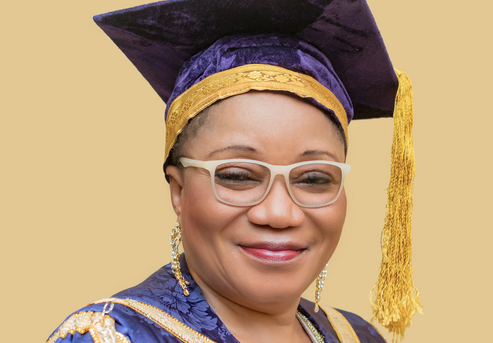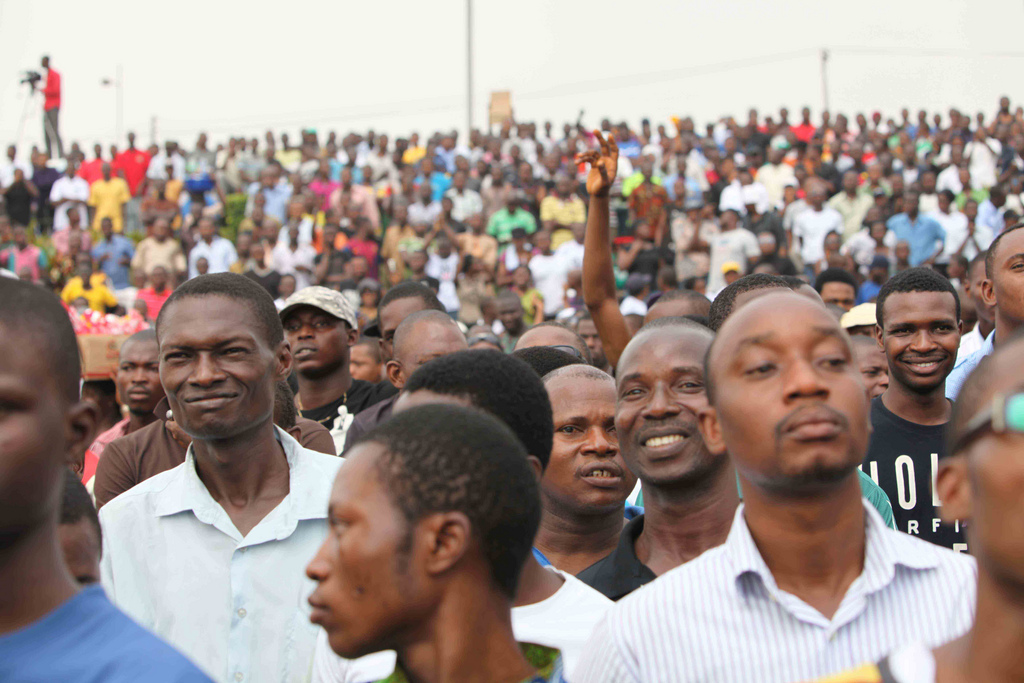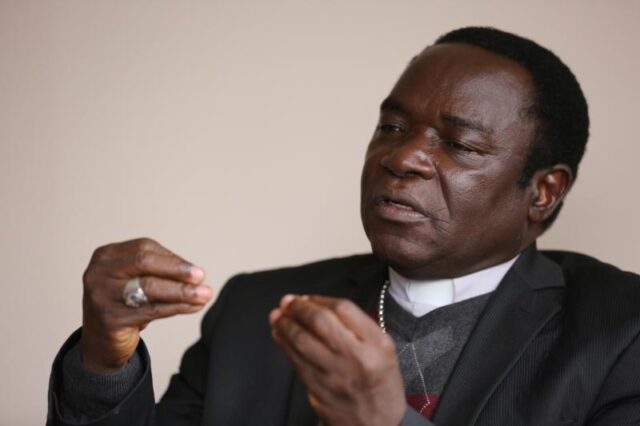This is the moment of truth for both Nigeria and managers of its public-funded institutions. Right now, the country is between the devil and the deep blue sea on this issue of school reopening. COVID-19 is on the rampage again and this second wave is proving to be more fatal. Yet, amidst this deadly scourge is the pressure on vice chancellors to reopen their institutions for learning again. This is understandable as public universities have been shut for almost a year now. Students have become restless. Many of them are tired of staying at home and are eager to return to school. Some of them have even gone to the ridiculous extent of threatening to attack any vice chancellor that refuses to open the doors of their institutions for learning.
The Vice Chancellor, University of Benin, Professor Prof Lilian Salami, confirmed this on Wednesday when she featured on NTA Good Morning Nigeria breakfast show monitored by Franktalknow. The VC had said, “I have heard some students say, look, if you don’t open, we will beat up the vice-chancellors and start beating up the lecturers. Maybe other vice-chancellors can take up the beatings but I can assure you that Professor Salami is too fragile to be beaten.”
To further confirm their desperation to return to class, the students through their National Association of Nigerian Students (NANS) have vowed to ensure that COVID-19 guidelines and protocols are maintained in all the schools in the country to counter fears that resumption might spike up cases of the pandemic. Never mind that this vow of theirs is nothing but mere grandstanding. I mean what can these students do in the area of overcrowded lecture halls and hostels for example? Would they command into existence lecture theatres, hostels, or water in institutions that still rely on streams? What about the poor student-teacher ratio? Do they have the resources to employ lecturers to reduce the alarming situation in our public universities? How many bottles of disinfectants can they procure for universities across the country?
I quite understand that the students said some of these things to show their level of desperation especially when their lecturers have repeatedly said it is not yet safe to reopen the universities. The Academic Staff Union of Universities, which just called off its nine-month strike, has said the FG is yet to put in place safety guidelines in its universities and that public universities do not have the facilities to protect its members from contracting the deadly virus.
Really, the Federal Government can’t deny this. Government is aware of the dangers of allowing in-person learning in its poorly maintained institutions, but at the same time can’t possibly keep them shut indefinitely. So cleverly, the Presidential Task Force on COVID-19 says it has left the decision as to whether to open schools or postpone reopening to the Education ministry. Similarly, the Minister of Education, Mallam Adamu Adamu, who had hinted on Monday that government would review the January 18 date earlier fixed for resumption of schools across the country, has yet to come up with any specific date. Meanwhile, the same government that cannot provide ordinary water in its institutions will be the first to sanction private businesses for not doing same. Our hypocritical leaders are eager to penalise the private sector for violating COVID-19 protocols but reluctant to do the needful in public-funded institutions.
Advertisement
I guess they sanction others because it is the easiest thing to do and the cheapest way of pretending to be in charge.
It is common knowledge that the more a person interacts with others, and the longer that interaction lasts, the higher the risk of COVID-19 spread. So, university lecturers are right in expressing reservations on reopening of our public institutions knowing how overcrowded they can be. Even universities in countries with sophisticated and better amenities recorded greater number of COVID-19 cases when they opened their doors to students for in-person learning in 2020. For example, a study by the US government reveals that counties with colleges and universities offering in-person instruction experienced a 56% increase in incidence. What we can glean from this study is that our universities may likely become super spreaders if opened for in-person learning, going by their level of infrastructural decay.
Education is important and learning cannot wait. That is why the US Centre for Disease Control and Prevention recommends that universities should be accorded preferential treatment under COVID-19 in terms of operations. To protect everyone, it came up with a guideline that spelled factors that constitute different levels of risks. The centre then recommended Hybrid learning model whereby students participate in virtual learning, and in-person learning is limited to courses and laboratory instruction that cannot be delivered remotely.
Students, faculty, and staff are expected to participate in small, in-person classes, activities, and events that allow individuals to remain spaced at least 6 feet apart. Students are told to avoid out-of-class social gatherings and events. Students, faculty, and staff are not expected to share objects (e.g., laboratory, art, or recreational equipment and supplies). It also recommends staggered schedules in residence halls, dining areas, and recreational areas on campus, small groups of students and minimal contacts with others. This is in addition to regular scheduled cleaning and disinfection of frequently touched areas as they occur.
Advertisement
Which government-funded university in Nigeria can do all of these? Except we want to deceive ourselves, we all know that the average Nigerian public funded universities are far from what a university environment should be. How many of them have regular supply of water; how many of them have lecture rooms that can provide the social distancing space of at least six feet apart, hand hygiene and disinfectants required for the control of COVID-19? How many of them have toilet facilities not to now talk of constant cleaning. How many of them have enough seats for students? How many of them are operating within their carrying capacities? A friend recently told me that he teaches a class of over 200 students. And he does that without a public address system! What infrastructures do we have in our public institutions that can help in curbing the spread of this virus? We have talked about the problem of poor funding of our public institutions times without number. It is obvious government does not have enough resources to run them well and it is reluctant to review its funding formula.
Where do we go from here? Should we then say that students should remain at home and wait till our government put the right things in place before they go back to school? Or should we wait for COVID-19 to disappear before our federal universities can resume learning? We don’t even know when this COVID is planning to leave the planet earth. Scientists are only trying their best to keep the virus at bay and people across the world are seeking ways to move on with their lives in spite of it. In fact, if we are going to wait for things to be put right in our universities before students go back to school, we may have to wait for another 20 years! By then, our public university system would have probably gone into extinction! So, ASUU should realise that as genuine as its concerns may be, we cannot wait for things to be put right before our universities reopen.
A way out of this is for our public institutions to adopt the well tested hybrid system that inculcates online and in-person learning. Gladly, COVID-19 has given us the opportunity to identify the forward-looking ones among our university managers. The ones in this category have told us that they are either going fully remote or adopting a hybrid system. That is the way to go. The ones that are behind the times among them are still bent on running full in-person lectures. But they need to be reminded that this is a risk. For me, any vice-chancellor that has nothing more to offer than full in-person learning at this stage is not innovative enough. ASUU strike provided more than enough opportunity for any university manager to set up an IT centre that could support remote learning. No excuse, no matter how logical it sounds, should be tenable for not doing that. Anyone who still thinks learning method will remain what it was pre-COVID-19 must be living in a fool’s paradise.
Deji-Folutile is the Editor-in-Chief, Franktalknow.com and member, Nigerian Guild of Editors. Email: [email protected]
Advertisement
Views expressed by contributors are strictly personal and not of TheCable.
Add a comment







